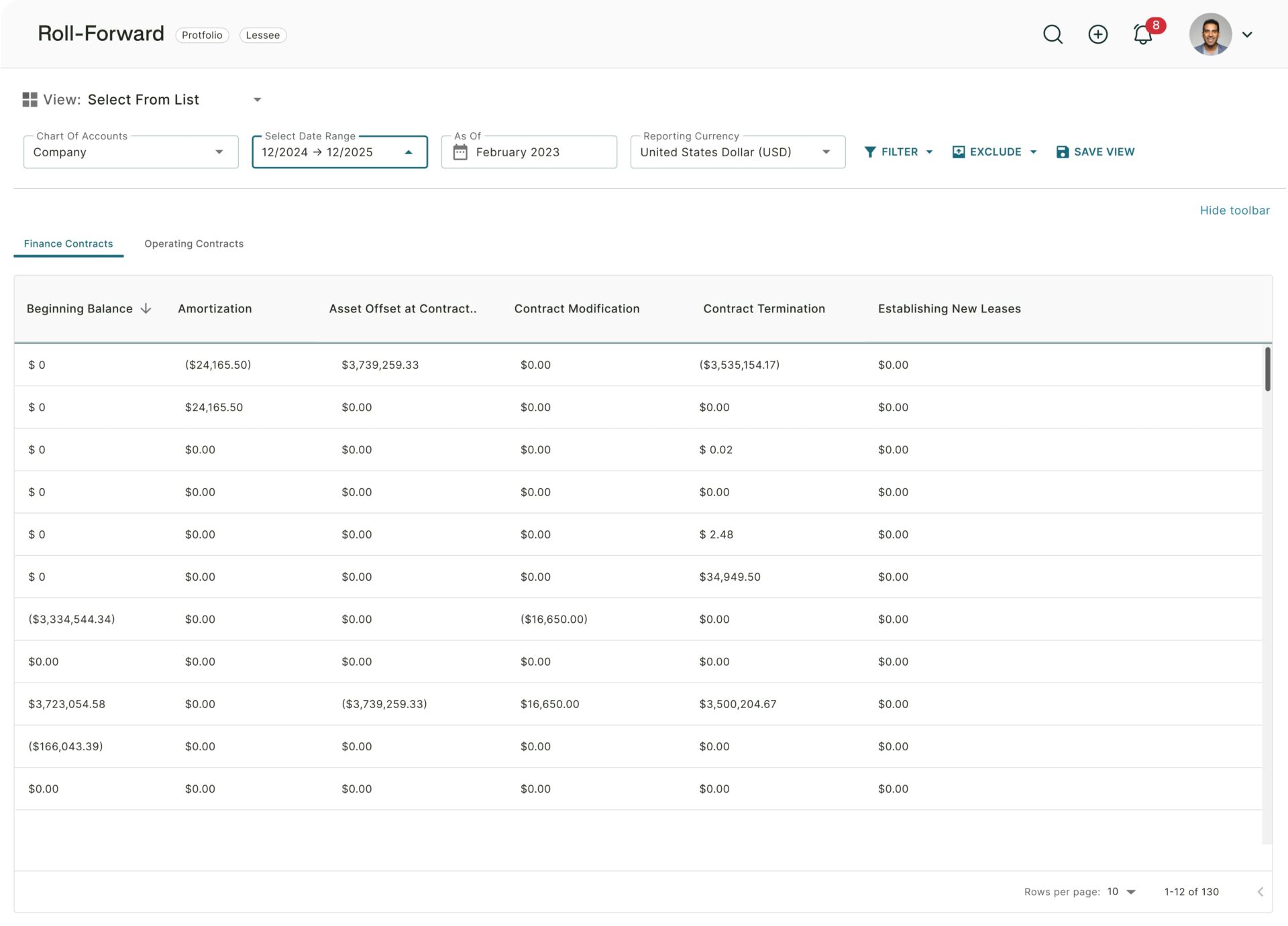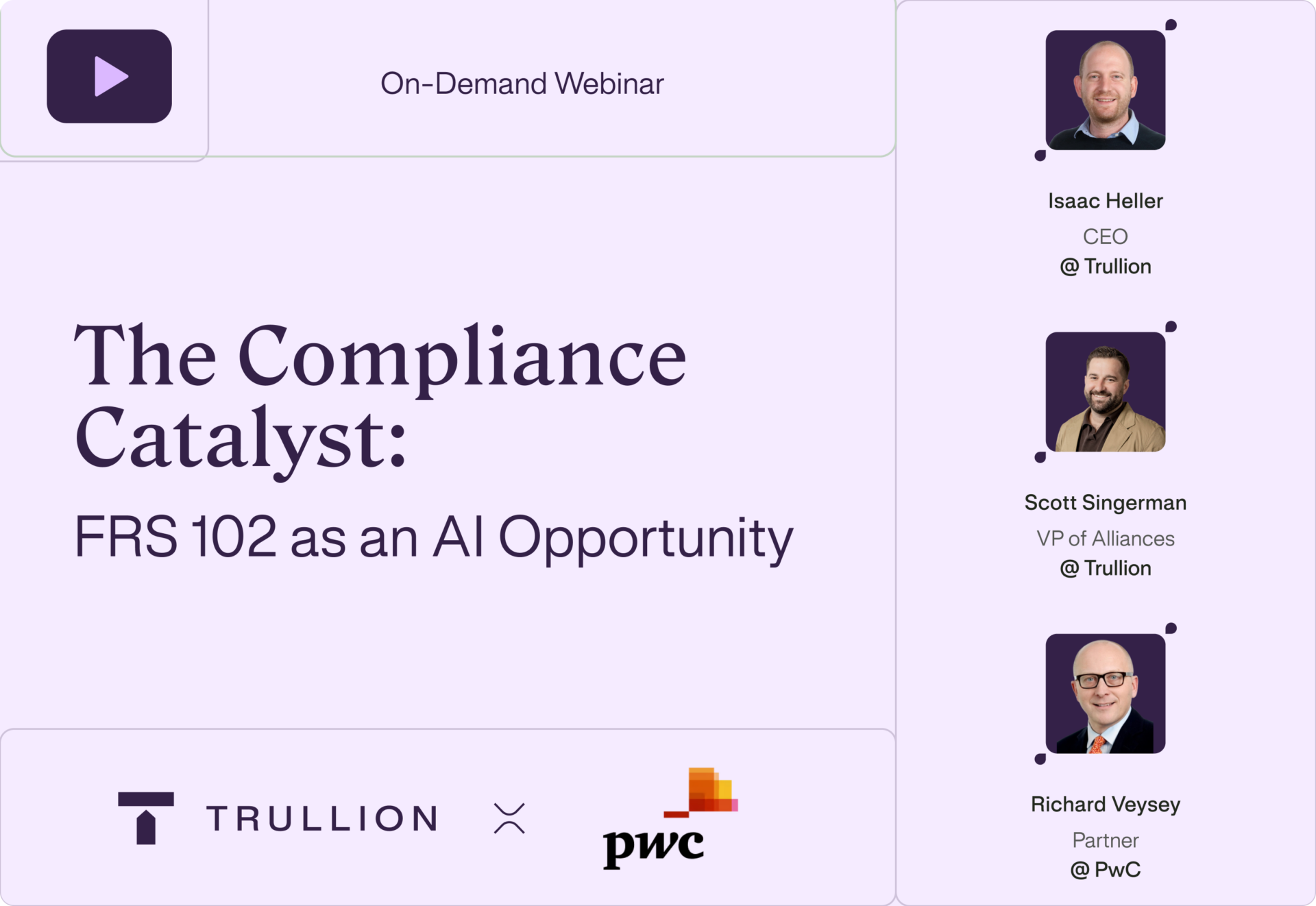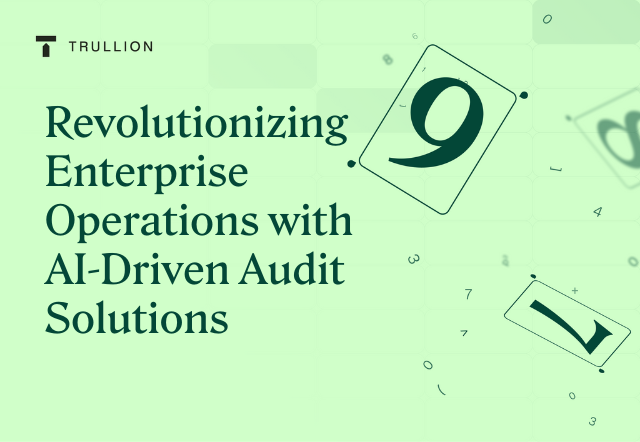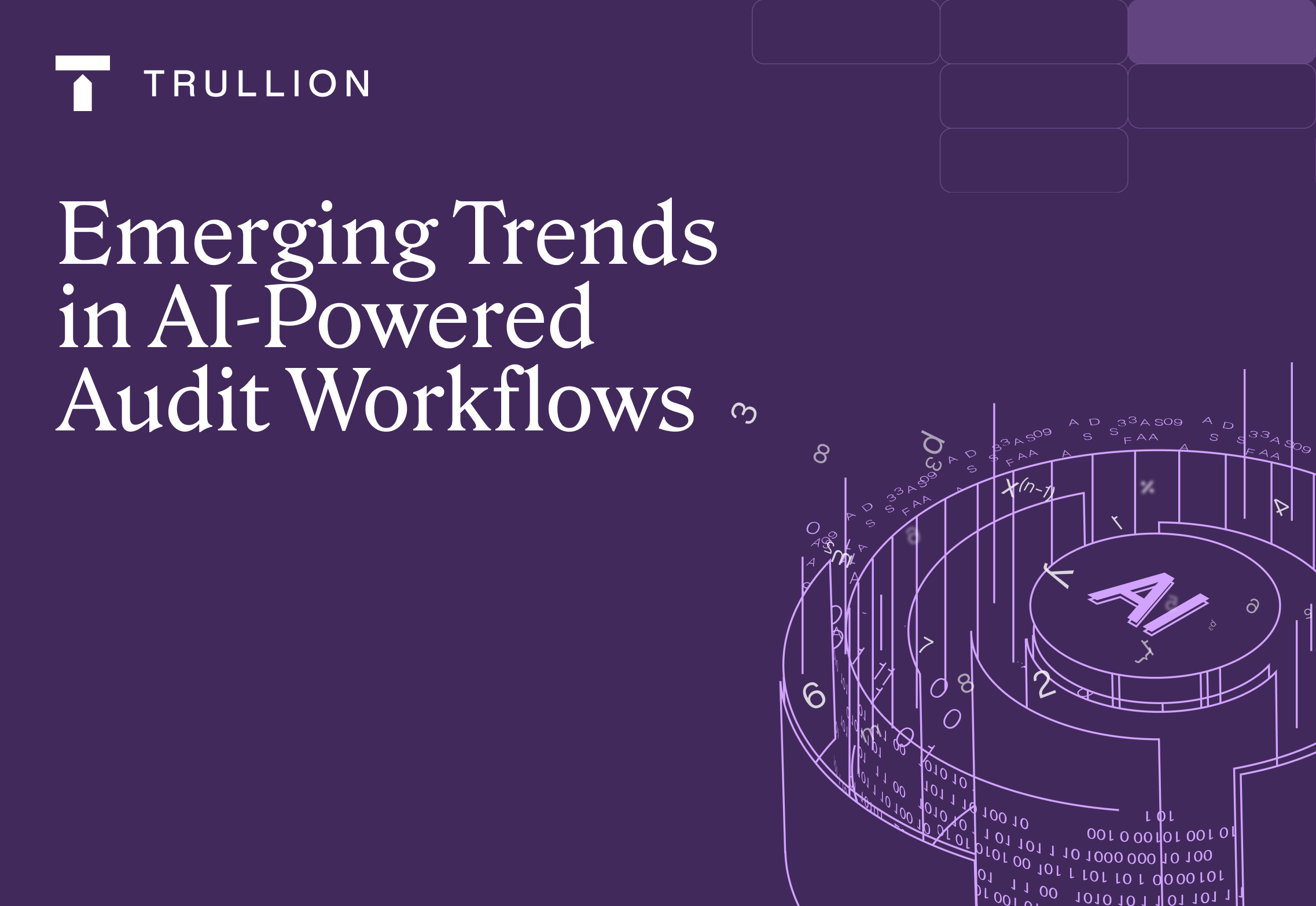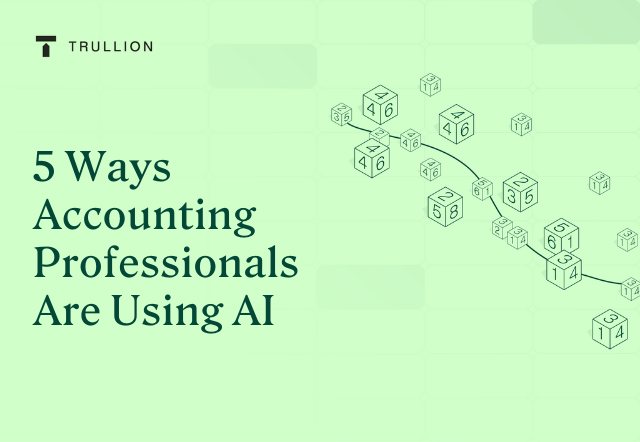Enterprise Audits
Auditing an enterprise can be orders of magnitude more complex than an “ordinary” audit, often just because of the sheer scale of the task. On the other hand, there are (usually!) more stringent and reliable internal controls, an internal audit team, and, in most cases a well-known and stable ERP system that somewhat simplifies the data flow.
When it comes to enterprise auditing, traditional audit processes are increasingly facing challenges that undermine their efficiency and effectiveness.
Enter AI-driven audit solutions – a revolutionary approach that is transforming the enterprise audit landscape.
Here, we look at the current challenges in enterprise auditing, explore how AI-driven solutions are addressing these hurdles, examine their impact on adhering to audit standards, and offer insights on selecting the right AI-driven audit solution for your use case.
Current Challenges in Enterprise Auditing
Traditional auditing methods are often labor-intensive, time-consuming, and prone to human error. Auditors typically grapple with vast amounts of data, complex regulations, and the need for accuracy in their assessments.
Additionally, the dynamic nature of business operations and the ever-evolving regulatory landscape further complicate the auditing process. These challenges not only increase the risk of oversight and inaccuracies but also elevate operational costs and extend audit timelines.
Enterprise auditing often involves:
- Complex organizational structures: Large enterprises often have complex structures, including multiple subsidiaries, divisions, and international branches.
- Diverse business operations: Enterprises usually engage in a variety of business activities, which might include manufacturing, services, and digital operations, each with its own set of risks and regulatory requirements.
- Large volumes of data: The sheer volume of transactions and data in large enterprises is significantly higher than in smaller businesses.
- Sophisticated financial instruments: Enterprises often use complex financial instruments for investment, hedging, or financing purposes.
- Regulatory compliance across jurisdictions: If the enterprise operates globally, it must comply with a multitude of regulatory environments.
- Advanced technology and systems: Large enterprises typically use sophisticated technology and systems for their operations. Auditors need to have a good understanding of these systems to assess the IT controls and the integrity of the data they generate.
- Risk management and internal controls: Enterprises often have complex risk management and internal control systems.
- Corporate governance: Auditing large enterprises involves assessing the effectiveness of corporate governance, including the roles and responsibilities of the board of directors and executive management, which is often more complex than in smaller organizations.
- Stakeholder expectations: There is usually a wider range of stakeholders interested in the performance and compliance of large enterprises, including shareholders, regulators, customers, and the public. This places additional pressure on auditors to ensure thoroughness and accuracy.
- Ethical and sustainability issues: Enterprises are increasingly expected to adhere to ethical standards and sustainability practices. Auditors must be able to assess not just financial performance but also compliance with these broader societal expectations.
With such a fast pace of business change today, these challenges are often only addressable using AI-driven audit solutions.
How AI-Driven Audit Solutions Address These Challenges
AI-driven auditing represents a transformative solution in addressing the unique challenges faced in auditing large enterprises. The primary advantage of AI in this context lies in its ability to manage and interpret the vast and complex data sets that large enterprises generate.
For instance, when dealing with the organizational structures of multinational corporations, AI algorithms can efficiently navigate through various layers of data, identifying and correlating financial information across different departments, subsidiaries, and geographical locations. This capability significantly reduces the time and effort required to consolidate and analyze data, thereby enhancing the overall efficiency and accuracy of the audit process.
Moreover, AI systems are excellent at identifying patterns and anomalies that might indicate errors, fraud, or non-compliance issues, which are especially crucial in the complex operational environments of large enterprises.
In addition to data management, AI-driven auditing tools bring sophisticated analytical capabilities to the table, essential for dealing with the diverse business operations and sophisticated financial instruments of large enterprises.
AI algorithms can be trained to understand and analyze complex financial products, providing auditors with deeper insights into risk assessments and valuation challenges. This aspect of AI is particularly valuable in ensuring compliance with various regulatory standards across different jurisdictions, as it can be programmed to understand and apply multiple regulatory frameworks simultaneously.
AI also enhances the assessment of internal controls and risk management systems by continuously monitoring transactions and operational processes, thus allowing for real-time detection of potential issues. This continuous monitoring, coupled with predictive analytics, empowers auditors to identify existing problems and to foresee potential future risks.
In essence, AI-driven auditing tools don’t just streamline the audit process; they elevate its strategic value by providing deeper, more accurate insights and predictive capabilities that are essential for navigating the complexities of auditing large, multifaceted enterprises.
Impact on Adherence to Auditing Standards
The integration of AI into auditing also has profound implications for adherence to auditing standards.
AI-driven solutions enhance the reliability, consistency, and transparency of audits, aligning closely with the principles of auditing standards. They facilitate a more thorough and evidence-based audit process, ensuring that audits are conducted with due diligence and accuracy.
AI-driven audits are also able to keep up with ever-evolving standards better, reducing the risk of non-compliance.
Considerations When Selecting an AI-Driven Audit Solution
While AI-driven audit solutions offer numerous benefits, selecting the right one for your needs requires careful consideration. Here are key factors to consider:
Compatibility with Existing Systems: The chosen solution should seamlessly integrate with the organization’s existing systems and processes. Compatibility reduces implementation challenges and ensures smooth operation.
Scalability: The solution should be scalable to accommodate the organization’s growth and evolving needs. A scalable solution can adapt to increasing data volumes and complexity without compromising performance. A SaaS-based solution for example is seamlessly scalable and can grow with the enterprise.
Security and Compliance: Given the sensitivity of audit data, the solution must adhere to the highest standards of data security and privacy. It should also comply with relevant regulatory requirements, including AICPA SOC 2 certification.
User-Friendliness: The solution should be intuitive and user-friendly. A steep learning curve can hinder adoption and reduce the effectiveness of the solution. Look out for solutions with beautiful, intuitive interfaces that actually encourage user adoption.
Vendor Reputation and Support: Select a solution from a reputable vendor with a proven track record. Post-implementation support and training are crucial for maximizing the benefits of the solution.
Time: Will the solution actually save you time, as opposed to adding on time and friction to audits? Part of this involves visibility for stakeholders. The best AI-driven audit solutions can eliminate endless confusing email chains between client and auditor by providing real-time visibility to all key stakeholders.
Productivity: Ensure the solution you’re looking at empowers your teams to focus on high-value strategic tasks, and not busywork.
In Summary: AI-Driven Audit Is Already Becoming Standard for Enterprise Audits
AI-driven audit solutions are streamlining enterprise operations by addressing the challenges of traditional auditing methods. They enhance efficiency, accuracy, and compliance, transforming the audit function into a more strategic and value-added activity.
As organizations navigate their journey towards AI-driven auditing, careful selection and implementation of the right solution will be key to realizing its full potential. The future of auditing is here, and it is decidedly AI-driven.
To learn more about introducing AI into your audit process, reach out to the Trullion team.


